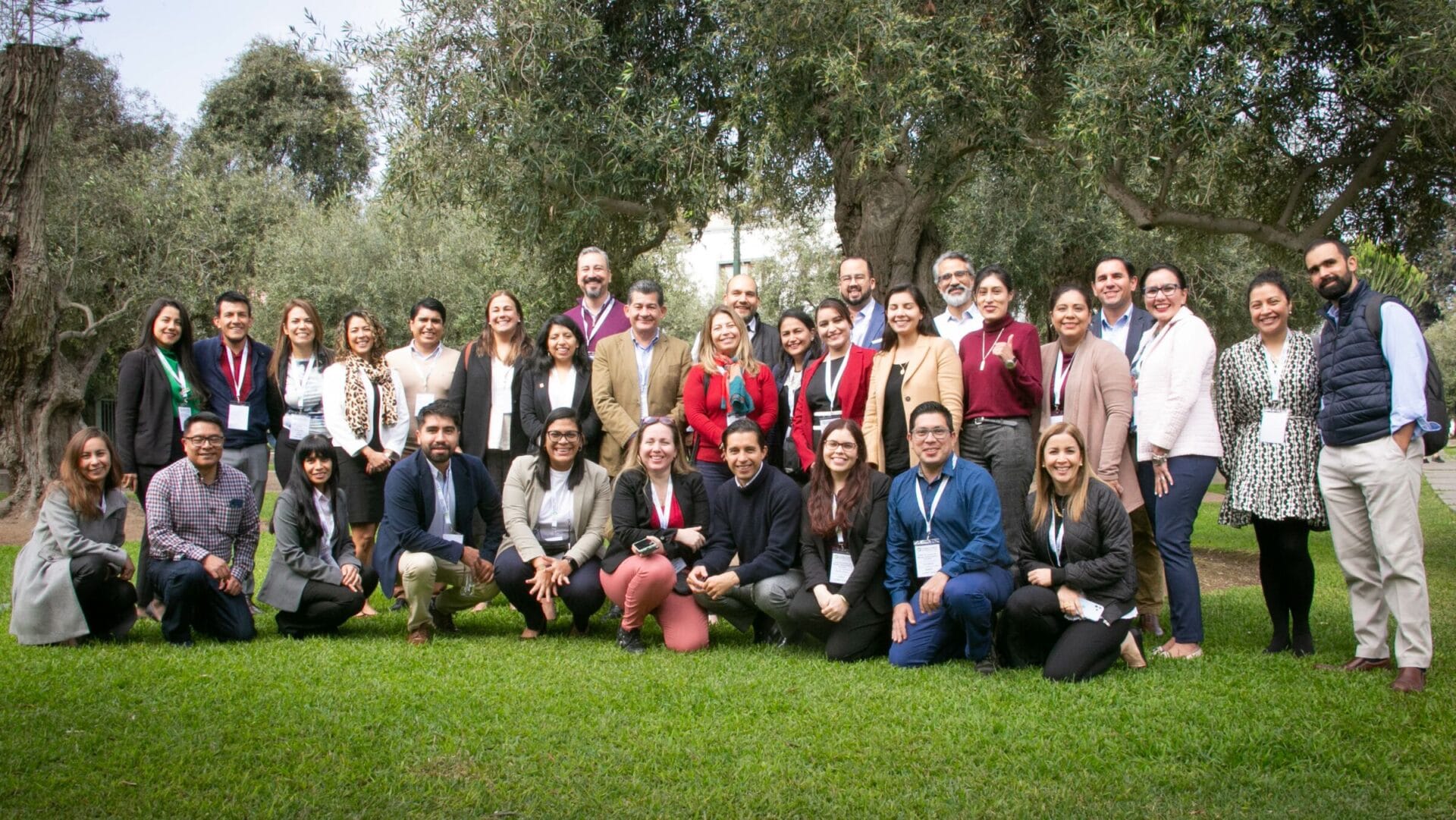GCPF regional workshop in Lima on social risk management best practice

Share
On September 15 and 16, 2022 an Environmental and Social (E&S) risk management workshop was held in Lima, organized by the GCPF team. The event brought together representatives of 14 financial institutions from 11 Latin American countries to discuss best practices related to social risk management. The workshop was made possible with financial support from the German Federal Ministry for Economic Affairs and Climate Action (BMWK), the UK’s Department for Business, Energy & Industrial Strategy (BEIS) and the Fund’s contribution to the Technical Assistance Facility.
The event was the first in person gathering after the coronavirus pandemic. It sought to revitalize the exchange of knowledge between E&S experts and to deepen the management of social risks through interactive sessions and case studies. The direct and indirect CO2 emissions resulting from this event, including emissions from air travel, have been accounted for and voluntarily offset with carbon credits. The active participation and engagement among participants made the workshop a success.
THE EVENT OFFERS THE OPPORTUNITY TO BUILD A NETWORK OF PROFESSIONALS FOR CONTINUED KNOWLEDGE SHARING

Carla Chizmar, Director of the Environmental, Social and Governance area, CIFI, Panama
CIFI has been in the market for 20 years and social and environmental risk management is an issue that we’ve been dealing with from the beginning, due to the interest of our shareholders. However, perhaps our main motivation is that in the sectors and the type of projects we finance, E&S risks is quite present. Therefore, it is essential to have well-trained staff.
The workshop has allowed me to see how other institutions seek to manage E&S issues within the sectors in which they work. For example, in microfinance we see that the challenges are different. I find it very valuable to be able to talk and generate synergies between specialists from different areas and countries, as it creates the opportunity to build a network of professionals who can bring you closer to other types of experiences and knowledge.
SOCIAL RISKS MANAGEMENT IS AS IMPORTANT AS ENVIRONMENTAL RISKS MANAGEMENT

Saúl Avarez, Business Manager, Banco Atlantida Bank, El Salvador
We began to address the issues of E&S risks in 2013. We started with a pilot plan that included three fundamental pillars: capacity management within the institution; the creation of a green credit line; and the search for strategic alliances. Along these lines, we signed agreements both local and international partners -for example with GCPF-, which has given us a boost so that the initiative could move forward and really work.
A highlight of this GCPF workshop is to discuss real cases and how to best address them. As a result of this workshop we realize that there is a need to address social issues more prominently, such as occupational safety, an element that we would like to incorporate into our risk analysis.
IT IS KEY TO EMPOWER FINANCIAL INSTITUTIONS AND GROW TOGETHER TOWARDS REGIONAL SUSTAINABILITY

Gabriela Barzuna, Credit Analysis Manager, Promerica Bank, Costa Rica
We are pioneers in the development of sustainable finance and as members of the Promerica Group, we have a strong commitment to sustainability. For this reason, we have a robust strategy in which E&S risk analysis is a fundamental pillar.
During these two days we reinforced the enormous relevance of social topics. In addition, it has been very enriching to return to an event of this type after two years of the pandemic, above all because it seems to me that sustainability must be a priority for banking entities and this type of training contributes to the growth and execution of actions that promote the social and environmental progress of our countries.
WORKING TOGETHER TOWARDS A MORE SUSTAINABLE FINANCIAL SECTOR

Bruno Quichimbo, Environmental Specialist, ProCredit Bank, Ecuador
The E&S risk management system was formally established in ProCredit Bank Ecuador in 2012. All this started from a direct initiative of the shareholders, who are very conscious of the E&S impacts that our institution generates, both internally and through its clients.
Regarding the issue of social risks, it is something that I did not know at the level that we have discussed in the workshop. Although we come from different countries and focus on different customer segments, I also can see that we are all rowing in the same direction, seeking greener and more sustainable economies. In this context, despite the fact that we are competitors, we are also collaborators, since if a bank moves in the direction of sustainable finance and then the others follow, a dynamic is generated within the market, that is beneficial for all.



